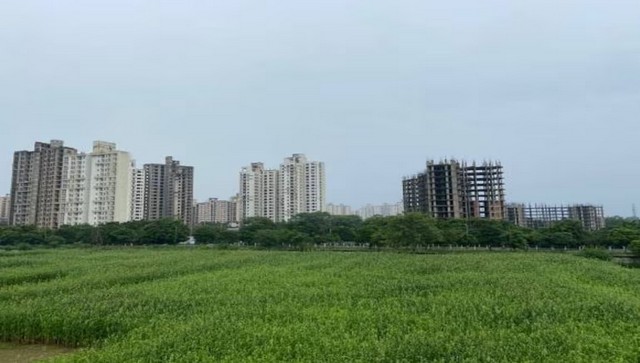
- Select a language for the TTS:
- UK English Female
- UK English Male
- US English Female
- US English Male
- Australian Female
- Australian Male
- Language selected: (auto detect) - EN
Play all audios:
Unfortunately for residents like Rubinstein and Revati, contributions to churches have taken a hit in this economy, so they're a prime target for cellphone companies dangling lucrative
lease agreements in exchange for allowing them to locate a tower on the property. Cellphone firms are also wooing firehouses, private citizens and towns themselves — towers are being erected
on both public and private property, and there's a federal initiative to extend broadband access to remote and rural areas. Some residents have criticized the way their local
governments have handled the issue. Morton Bleetstein, a retired financial planner who lives in a gated community in North Hills, Long Island, protested when Sprint erected a cell tower near
him eight years ago. "It was the way it was done — there were no hearings, nothing. We were fuming," Bleetstein said. The tower was in full view of the community, about 60 or 70
feet above the tree line, he recalled. When the residents pressed the North Hills Village Board to have the tower removed, Sprint agreed to reduce its height by half. BOOMERS WANT BROADBAND
To be sure, boomers, as they age, will benefit from improved broadband access — in greater access to mobile health applications and emergency services. Still, those who moved to their homes
or retirement communities when they were cell tower-free insist that there must be alternative locations for the towers. Ann Brooks, a spokesperson for T-Mobile, said that the ability for
carriers to select cell tower location is crucial, however. "Close to 25 percent of Americans are wireless households — they have cut their landlines and are using only their wireless
devices to keep in touch with their businesses and families. We've got to provide the infrastructure that allows them to use their phones when and where they want. That means we are
going closer to residential areas," she said. Lawyer Norman Albert represented Union County, N.J., when a group of cellular providers wanted to erect a tower on the grounds of a swim
club in the town of Cranford in 2008. Local residents voiced the increasingly common concerns about property values and potential health hazards, while the county argued that the beauty of a
nearby park would be affected. The wireless companies failed to make the case that the tower was necessary. Albert, 56, who lives in Cranford, said recently that he sympathizes with the
residents — he would not have wanted a tower near his house, either. "But as more cases happen, cellphone companies will get more sophisticated in how they present and appeal these
cases," he noted.





)

